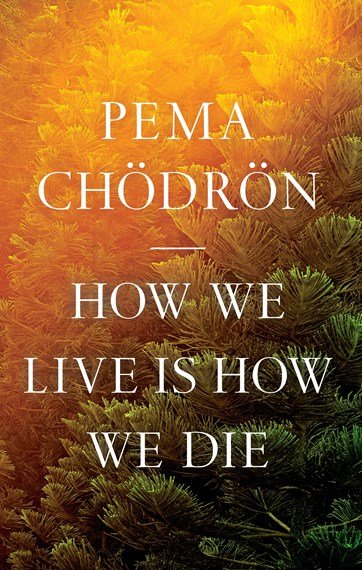Tergar Australia BOOK CLUB SERIES
Starts Thursday, November 7
Chapters 13 - 15
Zoom link opens at 6:45pm AEDT for pre-meeting casual conversation and catch-ups.
Regular programming from 7:00pm – 8:00pm.
Extra meditation from 8:00pm – 8:15pm for those who wish to stay.
There is no cost to attend, however donations are warmly welcome and accepted here.
During every moment of our lives, something is ending and something is beginning.
—Pema Chodron
Join us as together we explore Pema Chödrön’s latest offering to the world, How we live is how we die.
This will be a rich ground for us to discuss, and a great follow on from Mingyur Rinpoche’s our study of In Love with the world earlier this year, however it is certainly not necessary to have attended this.
About the book:
Discover newfound freedom in life’s ever-constant flow of endings and beginnings with the wise words of Pema Chödrön, beloved Buddhist nun and bestselling author of When Things Fall Apart.
As much as we might try to resist, endings happen in every moment—the end of a breath, the end of a day, the end of a relationship, and ultimately the end of life. And accompanying each ending is a beginning, though it may be unclear what the beginning holds. In How We Live Is How We Die, Pema Chödrön shares her wisdom for working with this flow of life—learning to live with ease, joy, and compassion through uncertainty, embracing new beginnings, and ultimately preparing for death with curiosity and openness rather than fear.
Poignant for readers of all ages, her teachings on the bardos—a Tibetan term referring to a state of transition, including what happens between this life and the next—reveal their power and relevance at each moment of our lives. She also offers practical methods for transforming life’s most challenging emotions about change and uncertainty into a path of awakening and love. As she teaches, the more freedom we can find in our hearts and minds as we live this life, the more fearlessly we’ll be able to confront death and what lies beyond. In all, Pema provides readers with a master course in living life fully and compassionately in the shadow of death and change.
About Pema Chodron:
Ani Pema Chödrön was born Deirdre Blomfield-Brown in 1936, in New York City. She attended Miss Porter’s School in Connecticut and graduated from the University of California at Berkeley. She taught as an elementary school teacher for many years in both New Mexico and California. Pema has two children and three grandchildren.
While in her mid-thirties, Ani Pema traveled to the French Alps and encountered Lama Chime Rinpoche, with whom she studied for several years. She became a novice nun in 1974 while studying with Lama Chime in London. His Holiness the Sixteenth Karmapa came to Scotland at that time, and Ani Pema received her ordination from him.
Pema first met her root guru, Chögyam Trungpa Rinpoche, in 1972. Lama Chime encouraged her to work with Rinpoche, and it was with him that she ultimately made her most profound connection, studying with him from 1974 until his death in 1987. At the request of the Sixteenth Karmapa, she received the full bikshuni ordination in the Chinese lineage of Buddhism in 1981 in Hong Kong.
Ani Pema served as the director of Karma Dzong in Boulder, Colorado, until moving in 1984 to rural Cape Breton, Nova Scotia, to be the director of Gampo Abbey. Chögyam Trungpa Rinpoche gave her explicit instructions on establishing this monastery for Western monks and nuns. She currently teaches in the United States and Canada and plans for an increased amount of time in solitary retreat under the guidance of Venerable Dzigar Kongtrul Rinpoche. She is interested in helping to establish Tibetan Buddhist monasticism in the West, as well as continuing her work with Western Buddhists of all traditions, sharing ideas and teachings. Her nonprofit, the Pema Chödrön Foundation, was set up to assist in this purpose.
With thanks to Shambhala Publications for the above.
This event is offered freely and at no-cost, however donations are warmly welcome and accepted here.
There are no pre-requisites to attend, and no ongoing commitment is required. All practitioners are welcome to drop-in and out as needed.

